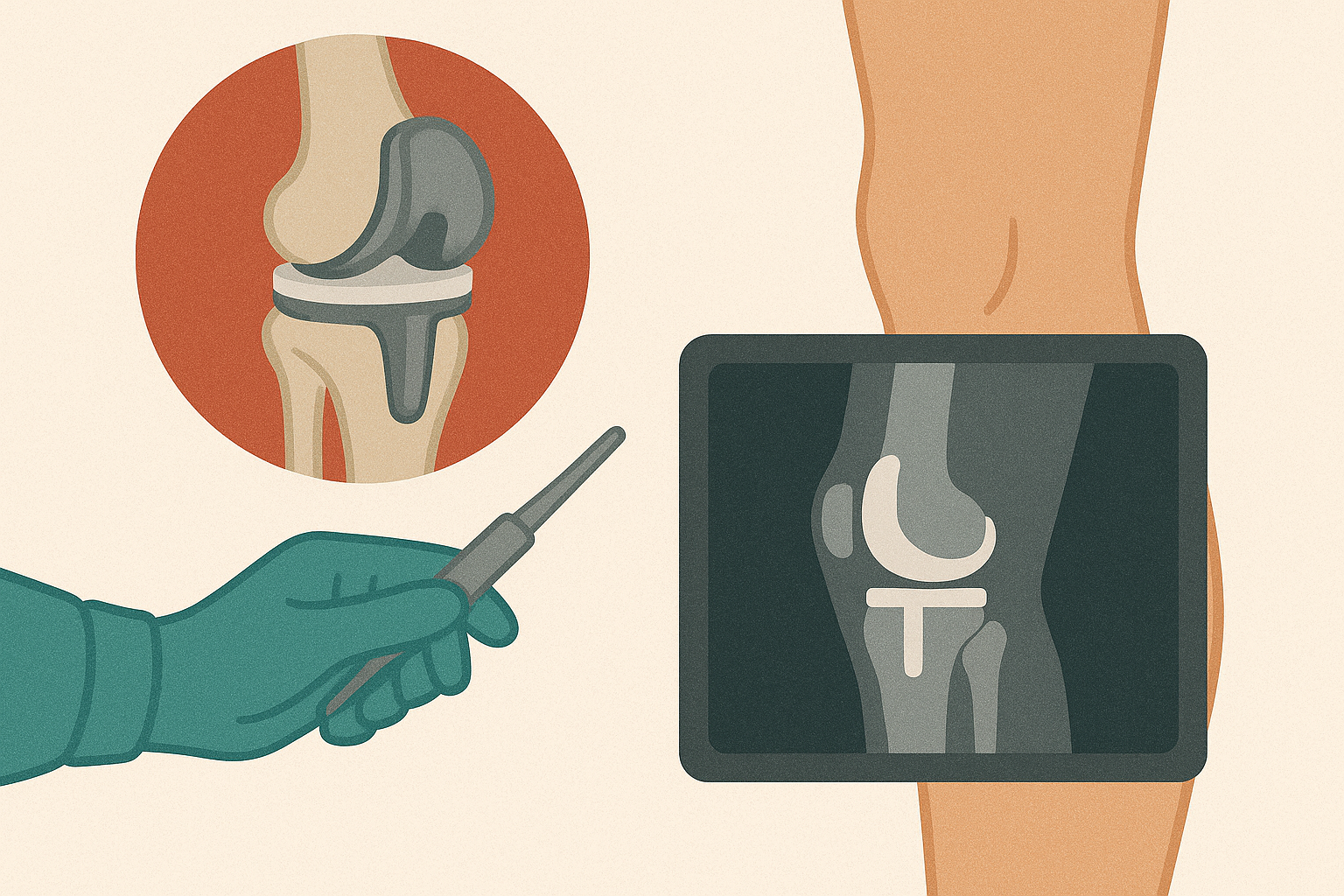
Total Knee Replacement Surgery: What Patients Need to Know
Total Knee Replacement Surgery: What You Need to Know
What is it?
Total knee replacement (also called total knee arthroplasty) is a surgical procedure where a damaged or worn-out knee joint is replaced with artificial components (prosthesis) made of metal, plastic, or ceramic. The goal is to relieve pain, improve function, and restore mobility in patients whose knee problems severely affect daily life.
Who qualifies for this surgery?
You may be a candidate if you have:
- Severe osteoarthritis, rheumatoid arthritis, or post-traumatic arthritis.
- Chronic knee pain that doesn’t improve with medications, physical therapy, injections, or lifestyle changes.
- Difficulty walking, climbing stairs, or performing daily activities because of knee pain or stiffness.
- Severe deformity of the knee (bow-legged or knock-kneed).
Doctors usually recommend surgery only after non-surgical treatments have been tried and found ineffective.
Will I be able to do sports after the surgery?
- Yes, but with some limits. Most patients can walk, swim, cycle, golf, and even play doubles tennis after recovery.
- High-impact activities (running, jumping, contact sports) are usually not recommended, as they may shorten the lifespan of the implant.
How long does recovery take?
- Hospital stay: Often 2–5 days, depending on recovery progress.
- Walking with support: Usually starts within 24 hours.
- Physical therapy: Needed for several weeks to months.
- Daily activities: Most people can resume light daily activities within 3–6 weeks.
- Full recovery: Typically takes 3–6 months, though improvement may continue up to a year.
Will it be as good as my own knee?
- The new knee is very effective at relieving pain and improving mobility.
- However, it may not feel exactly like your natural knee. Some people notice slight stiffness or reduced flexibility compared to before arthritis developed.
- About 90–95% of knee replacements work well for 15–20 years or longer, depending on activity level and overall health.
Other Commonly Asked Questions
How long will my knee replacement last?
Modern implants last 15–20 years on average, sometimes longer. Younger, more active patients may need revision surgery later in life.
What are the risks of surgery?
Like all major surgeries, risks include:
- Infection
- Blood clots
- Implant loosening or wear
- Stiffness or reduced range of motion
- Rare nerve or blood vessel injury
Doctors take steps to minimize these risks, and most patients have successful outcomes.
Will I have a scar?
Yes, you’ll have a scar along the front of your knee. It usually fades over time but may remain visible.
When can I drive again?
Most patients can drive within 4–6 weeks, once they can bend the knee comfortably and safely control the vehicle.
Will I set off airport metal detectors?
Yes, the metal components may trigger detectors. Carrying a medical implant card can be helpful, but security staff are used to this situation.
What can I do to prepare before surgery?
- Strengthen your leg muscles with gentle exercises.
- Stop smoking (improves healing).
- Control blood sugar if you have diabetes.
- Arrange for help at home during the first weeks of recovery.
Total knee replacement is a safe and effective surgery for people with severe knee pain and disability. With proper rehabilitation, most patients return to active, independent lives.
Contact us today!
Working hours
Monday – Friday: 08:30 – 17:00
Saturday: 09:00 – 14:00
Sunday: Closed
